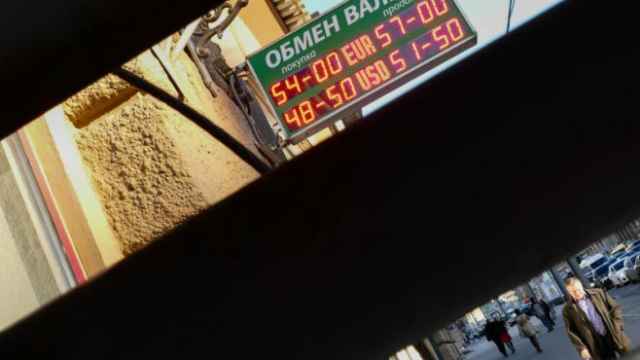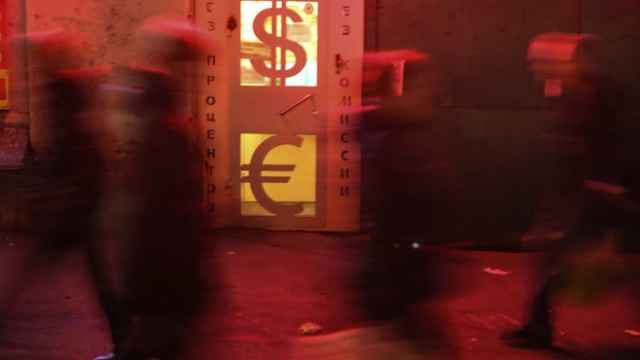Russia dropped seven positions in a ranking of the world's most competitive economies released this week as investment remained low amid geopolitical tensions over Ukraine and a burgeoning recession.
This was the first time in five years that Russia had fallen in the World Competitiveness Ranking, which is published yearly by the International Institute for Management Development (IMD), a Switzerland-based business school.
The slide was linked to the armed conflict in Ukraine and resulting market volatility, IMD said in a statement Wednesday. Russia had before climbed steadily in the ranking from 51st place in 2010 to 38th place in 2014, the Vedomosti newspaper reported.
Russia's annexation of the Crimean Peninsula from Ukraine in March last year and ongoing support for separatists in eastern Ukraine have dealt a blow to investors' faith in the country. They also triggered economic sanctions from the U.S. and EU last year, which have cut off Russian companies' access to international capital markets.
Combined with a steep slide in the price of oil — Russia's chief export — and systemic barriers to economic development, the sanctions have helped tip Russia into a deep recession. The Russian economy contracted by 4.3 percent year-on-year in April, state development bank VEB said in a report released Wednesday.
The IMD ranking rated 61 world economies based on “how well countries manage all their resources and competencies to facilitate long-term value creation,” the report said.
The United States managed to stay in first place in the IMD ranking thanks to a strong financial sector, high business efficiency, focus on innovation and good infrastructure, IMD said. Hong Kong and Singapore ranked second and third respectively.
A Message from The Moscow Times:
Dear readers,
We are facing unprecedented challenges. Russia's Prosecutor General's Office has designated The Moscow Times as an "undesirable" organization, criminalizing our work and putting our staff at risk of prosecution. This follows our earlier unjust labeling as a "foreign agent."
These actions are direct attempts to silence independent journalism in Russia. The authorities claim our work "discredits the decisions of the Russian leadership." We see things differently: we strive to provide accurate, unbiased reporting on Russia.
We, the journalists of The Moscow Times, refuse to be silenced. But to continue our work, we need your help.
Your support, no matter how small, makes a world of difference. If you can, please support us monthly starting from just $2. It's quick to set up, and every contribution makes a significant impact.
By supporting The Moscow Times, you're defending open, independent journalism in the face of repression. Thank you for standing with us.
Remind me later.






